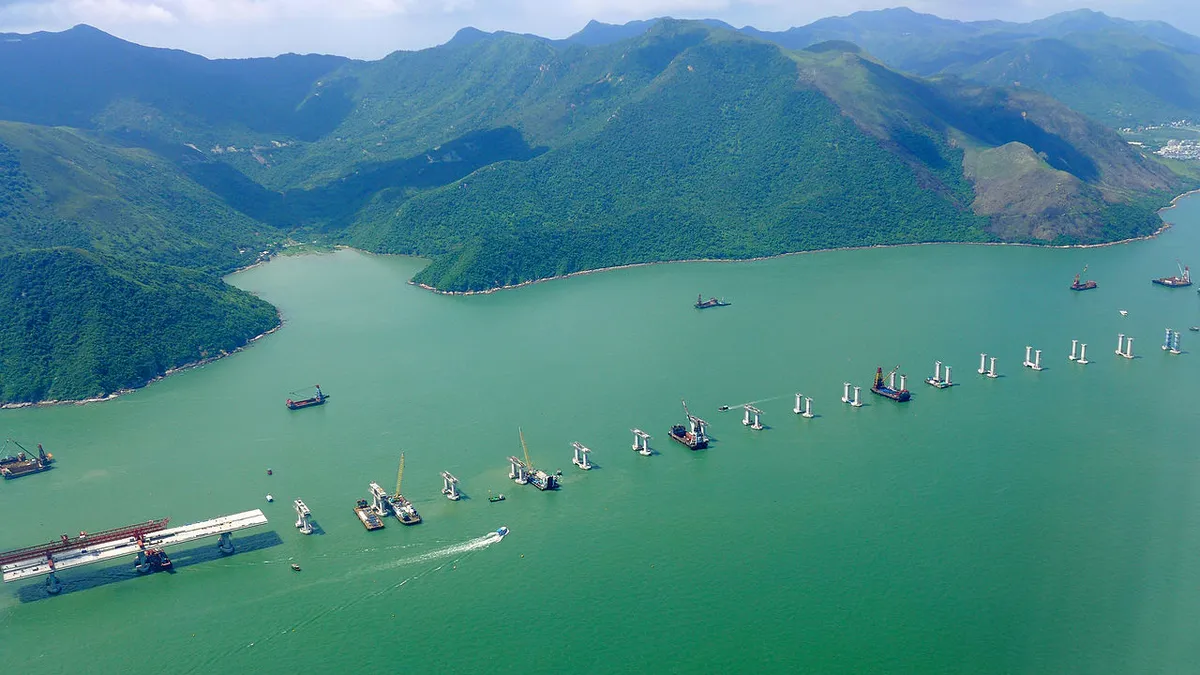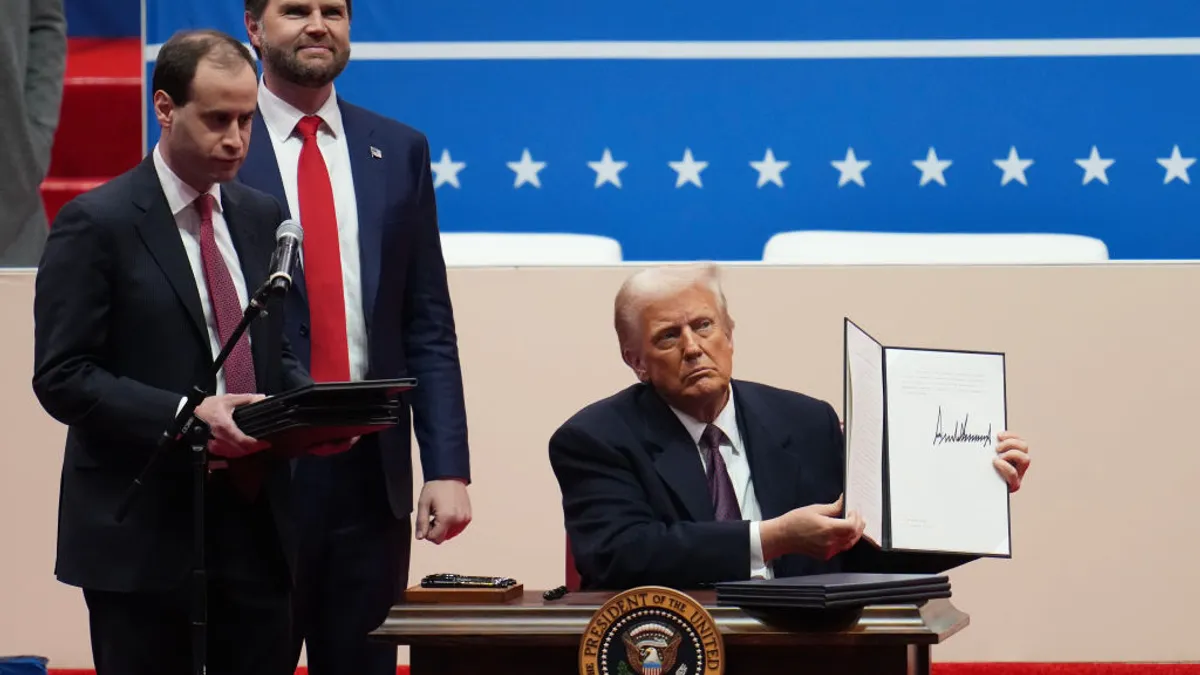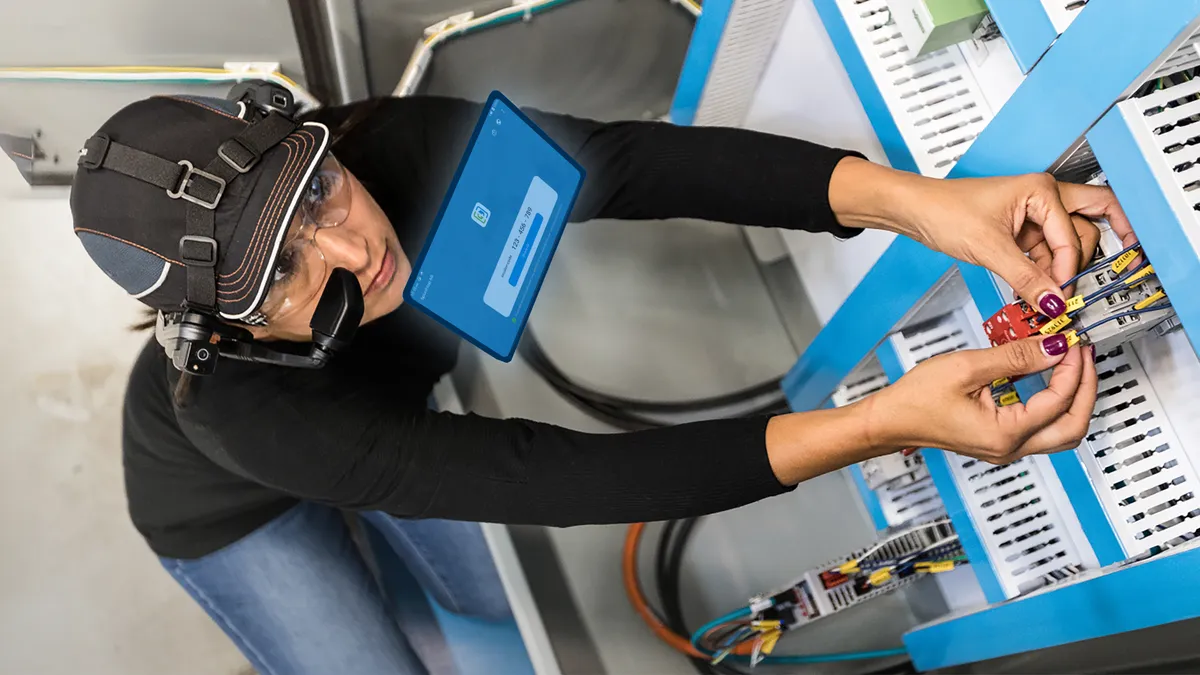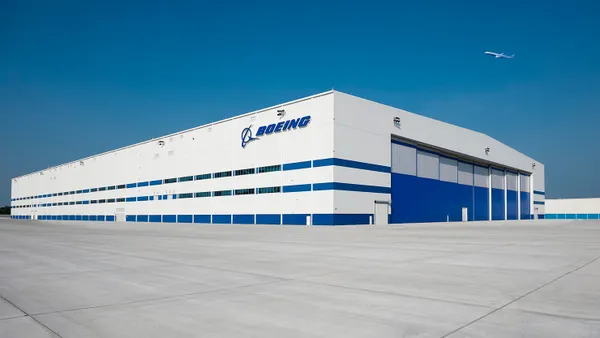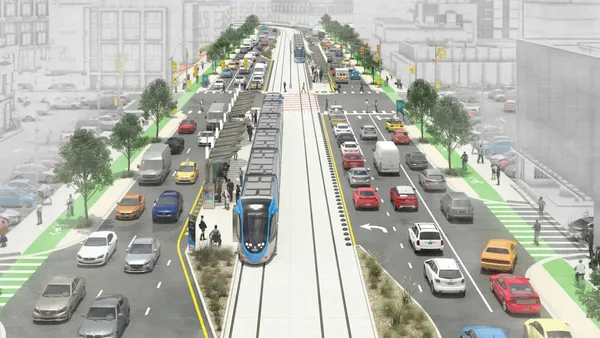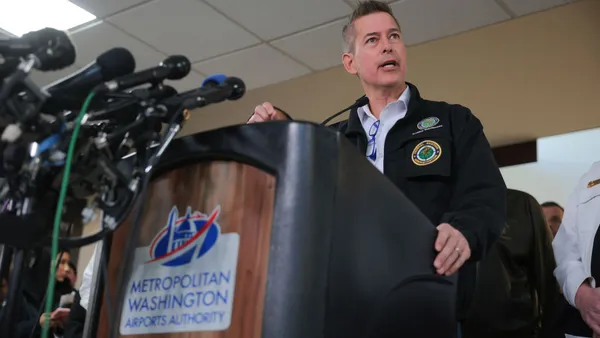Dive Brief:
- Two massive Chinese infrastructure projects under branches of Australian contractor Leighton Holdings — the more than 120 billion yuan ($18 billion in U.S. dollars) Hong Kong-Zhuhai-Macau Bridge and the 97 billion Hong Kong dollar ($12.4 billion) Sha Tin-Central Link rail project — have been plagued with design errors and accusations of subpar work, respectively, that could create dangerous work situations, according to the South China Morning News.
- One feature of the bridge, which is being built under a $1.1 billion joint venture contract between Leighton Asia and Chun Wo Development Holdings, is a passenger immigration building that crews built on an artificial island. The structure's basement has had water intrusion issues where the power supply is located, creating dangerous — possibly deadly — conditions for workers, according to engineers. In the wake of a June video showing smoke coming from a switch room that experienced flooding, engineering experts said that the power facilities should have been located on the ground floor, not the basement. Such a change would take three to four months, pushing the bridge's opening date into next year.
- In June, the Hong Kong police were called by rail company MTR Corp. to investigate claims that Leighton, the lead contractor for the Sha Tin-Central Link, had directed subcontractors to cut steel bars so that they would appear to be installed correctly. Leighton has denied the allegations. At the time of the initial report, MTR said only 25 bars had been altered, but further investigations have put that total at 5,000, representing about 20% of the steel bars used for the project. Local lawmaker and former rail executive Michael Tien Puk-sun said the modified bars could compromise safety in the years to come.
Dive Insight:
Stateside, the San Francisco Municipal Transportation Agency in April alleged that Tutor Perini and subcontractor Con-Quest Contractors installed the wrong type of rail track on more than three miles of the $1.6 billion Central Subway project, according to the San Francisco Chronicle, and demanded that the two companies replace it at their expense. The agency said Tutor Perini and Con-Quest used standard track even though the contract called for high-strength, control-cooled or vacuum-treated carbon steel tee rail.
Both contractors maintain that they carried out the work according to the terms of their contracts, and documents later emerged that appeared to indicate that the agency knew what kind of track Tutor Perini and Con-Quest were using.
As of May, other contractor claims on the project totaled $30 million, and full rail replacement would add $2.6 million to that figure, according to Con-Quest.


